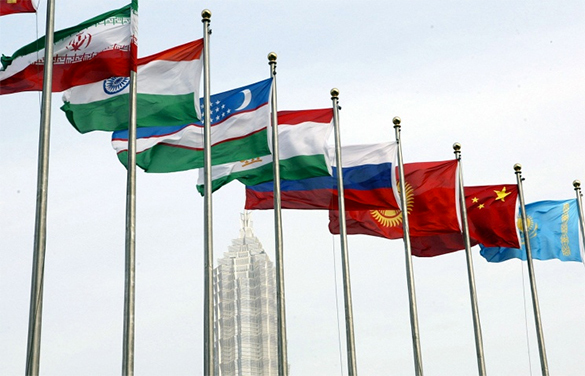Is Russia's Eurasian Partnership idea realistic?
How realistic is the idea to create the Eurasian Partnership that President Vladimir Putin put forward at the World Economic Forum? Should Russia come to the conflict region at all? Pravda.Ru asked these questions to Director of the Center for Strategic Studies "Russia - East-West," Vladimir Sotnikov.

"Russia has already established close economic and political partnership with China. Now it's time to think about the region on the southern borders of the CIS. It goes about such countries as Pakistan, India, Iran and possibly Afghanistan.
India and China maintain normal diplomatic relations. The countries exchange visits, including at the highest level. Yet, the potential for conflict still persists since the time of the border war in 1962, when the Chinese, according to India, conquered 22,000 square kilometers of the Indian territory. This question still remains open, but it does not stop the countries from developing their relations.
"Another pair is India and Pakistan. There is also a territorial dispute between them - the problem of Kashmir. The roots of this conflict go even deeper - to 1947, and there is no solution for the conflict in sight. The potential for the conflict of this confrontation remains very high.
"I would like to emphasize that China India and Pakistan are nuclear powers."
"India, China and Pakistan are three nuclear powers. India and China retain economic, political and geopolitical rivalries. India has an uneasy relationship with Pakistan, while Pakistan has established a very good relationship with China."
"True, the Pakistanis refer to China as their brotherly nation and an "all-weather friend."
"And China, of course, takes advantage of it for the sake of its geostrategic interests. It goes about in particular, the transit potential of Pakistan."
"The Chinese were actively involved in financing the construction of the deepwater port of Gwadar. The first stage of its construction is near completion. The works were conducted by Chinese state-owned and private companies. In fact, the Chinese have been following the strategy to gain access to warm seas. With the Pakistani port of Gwadar, China becomes a major player in the Indian Ocean.
"In response, India aims to develop cooperation with Iran. There is a long-standing project of an oil and gas pipeline from Iran to India. At the same time, India is building a Gwadar-like port in Iran - Chabahar. It just so happens that there are two competing structures being created. Gwadar and Chabahar are located in two different countries in the historic Baluchistan - the territory, similar to Kurdistan, that is divided between several countries, but populated by one nation - the Baluchis.
"This is where Russia should think about a very important geopolitical, geostrategic international organizations such as the Shanghai Cooperation Organization (SCO). We have already gained quite a rich experience of cooperation with Central Asian states and China in the first place. Noteworthy, India and Pakistan are to become full members of the organization soon.
"Russia should also bear in mind the fact that Central Asia and South Asia attract our, so to speak, Western partners - the United States in the first place. Obama, for example, has recently decided to increase the US military contingent in Afghanistan. The US seeks to retain some kind of stable leverage in the region. All this suggests that, in my opinion, American experts have a very narrow approach to the region - they look at it through the prism of specific projects that need to be implemented. Yet, the idea of the Eurasian Partnership embraces many other goals. This is the primary objective for the activity of the SCO and the troika of Russia-China-India.
Interviewed by Dmitry Nersesov
Pravda.Ru
Read article on the Russian version of Pravda.Ru
Subscribe to Pravda.Ru Telegram channel, Facebook, RSS!


